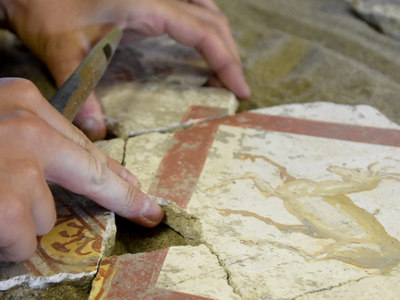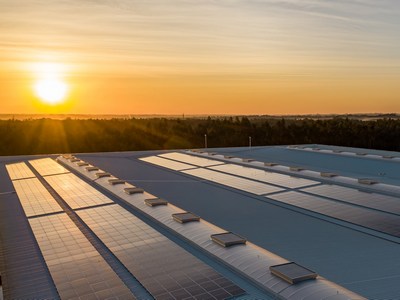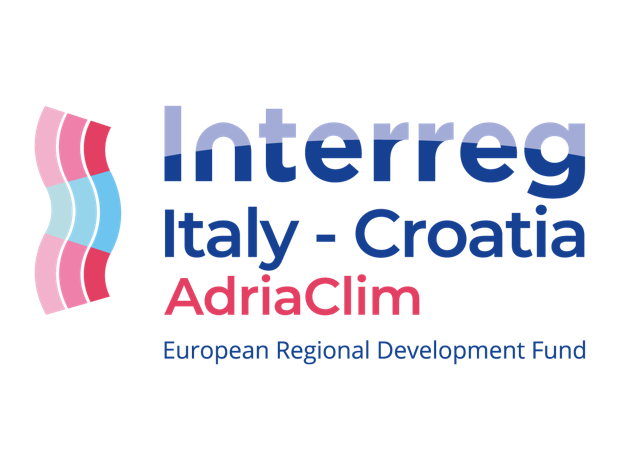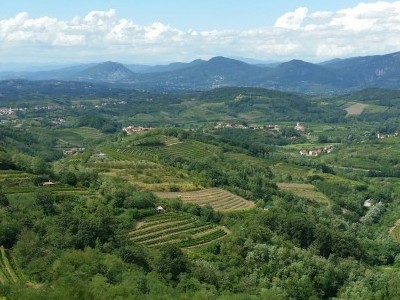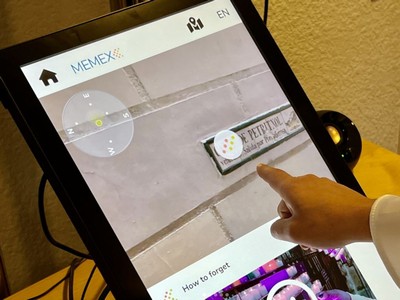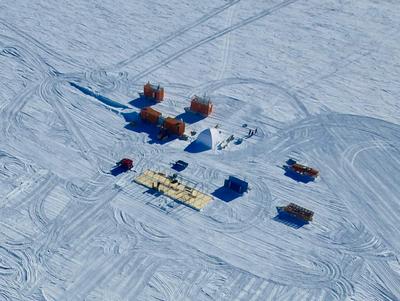Complexity

Research Institute for Complexity
Science of complex economic, human and natural systems
The transdisciplinary study of complex systems offers innovative solutions to outstanding scientific questions and global societal challenges. It requires the work and contributions of mathematicians, computer and data scientists, physicists, linguists, historians, social scientists and researchers in the fields of humanities, economy, ecology and climatology. In complex systems, growth patterns and final structures are not predictable: no design is possible from a priori knowledge but design possibilties are experimented: it requires evolutionary algorithms to optimize complex systems.
Pattern identification and the study of dynamic interactions in complex systems allow the development of models and simulation tools that fit stylized facts and can be applied in a variety of fields, ranging from climate projections to the implementation of risk management and mitigation strategies and the understanding of behaviours in socio-economic, and natural systems.
Keywords
Advanced and smart materials, Behavioural models, Big data, Climate science, Complex networks, Computational models, Computing, Data mining, Modelling, simulation and forecasting tools, Network modelling, Pattern identification and analysis, Risk assessment, Risk management, Smart cities and, communities, Systemic risk
Coordinator
Research facilitators
Members
High-impact and award-winning projects
Reconstructing the Past: Artificial Intelligence and Robotics meet Cultural Heritage (RePAIR)
The main goal of the RePAIR project is to develop innovative technology to virtually eliminate one of the most laborious and frustrating steps in archaeological research, namely the physical reconstruction of shattered artefacts. In fact, countless vases, amphorae, frescoes and other ancient artifacts, around the world, have not survived intact and have been extracted from excavation sites as large collections of fragments, many of which are damaged, worn out or entirely missing.
Project website / EU Cordis database
Researcher: Marcello Pelillo
Duration: 01/06/2021 - 31/12/2024
Funding: Horizon 2020 Excellent Science - Future and Emerging Technologies (FET)
SunShine - Safe by Design Strategies for High Performance Multi-component Nanomaterials
SUNSHINE is an industry-oriented project, where leading research and technology organisations will cooperate with SMEs and large industries to develop and implement simple, robust, and cost-effective Safe and Sustainable by Design (SSbD) strategies for materials and products incorporating advanced multi-component nanomaterials. To this end, the project will establish a user-friendly e-infrastructure to foster dialogue, collaboration, and information exchange between actors along entire product supply chains. The SSbD strategies will modify products and processes involving advanced multi-component nanomaterials in order to reduce their potential for release or hazard potency. The goal is to develop technologies that are safe and sustainable, but also retain the desired functionality for their intended uses. In addition to promoting safe and sustainable innovation, SUNSHINE will facilitate a two-way dialogue between innovators and regulators, which can help to raise awareness and address regulatory concerns in the early stages of innovation. Ideally, this can shorten the time of novel nanotechnology products to reach the market.
Project website / EU Cordis database
Researcher: Antonio Marcomini
Duration: 01/01/2021 - 31/12/2024
Funding: Horizon 2020 Industrial Leadership: Leadership in enabling and industrial technologies - Advanced materials
ELISE - European Learning and Intelligent Systems Excellence
ELISE is a network of artificial intelligence research hubs. Based on the highest level research, it spreads its knowledge and methods in academia, industry and society. The network invites all ways of reasoning, considering all types of data applicable for almost all sectors of science and industry. We do this while being aware of data safety and security, and striving to explainable and trustworthy outcomes. ELISE works in cooperation with ELLIS (European Laboratory for Learning and Intelligent Systems). ELISE is part of the EU Horizon 2020 ICT-48 portfolio, and is coordinated by Aalto University.
Project website / EU Cordis database
Researcher: Marcello Pelillo
Duration: 01/11/2020 - 31/10/2023
Funding: Horizon 2020 Industrial Leadership - Leadership in enabling and industrial technologies - Information and Communication Technologies (ICT)
Italian-Slovenian ecosystem for electronic and mobile healthcare
The main overall objective of the project ISE-EMH ("Ecosistema italo-sloveno per la sanità elettronica e mobile") was to strengthen cross-border cooperation and knowledge transfer in the field of e-health and mobile (EMH). Collaboration and knowledge transfer were facilitated by the creation of a cross-border ecosystem of EMH which allowed the joint and synergistic development of new solutions and the knowledge transfer of multiple stakeholders (companies, research institutes, health institutions, etc.).
Website
Researcher: Flavio Rizzolio
Duration: 01/03/2020 - 01/03/2022
ADRIACLIM: adaptation strategies in Adriatic coastal areas
AdriaClim - Climate change information, monitoring and management tools for adaptation strategies in Adriatic coastal areas is a research project funded by the Italy-Croatia Interreg Cooperation Programme, which is dedicated to supporting the development of science-based regional and local climate change adaptation plans. AdriaClim will address climate change threats by developing regional and local adaptation plans based on up-to-date meteorological and oceanographical information acquired through newly implemented observing and modelling systems for the Adriatic Sea.
Website
Researcher: Andrea Critto
Duration: 01/01/2020 - 30/06/2023
Acquavitis - Efficient use of water in cross-border viticulture
ACQUAVITIS ("Soluzioni innovative per l’uso efficiente dell’acqua in viticoltura transfrontaliera") aims at developing and testing joint innovative technologies and solutions for the sasfeguard and efficient use of water resources in viticulture, for the risk planning associated with extreme events, to face climate change and to transfer knowledge and have exchange of experiences from research centres to grapevines companies in the cross-border area. The project actively involves at least 15 companies in order to implement effective economic management models.
Website
Researcher: Barbara Stenni
Duration: 01/01/2020 - 31/08/2022
MEMEX: MEMories and EXperiences for inclusive digital storytelling
MEMEX promotes social cohesion through collaborative, heritage-related storytelling tools that provide access to tangible and intangible Cultural Heritage (CH) for communities at risk of exclusion. The project implements new actions for social science to: understand the needs of such communities and co-design interfaces to suit their needs; develop the audience through participation strategies; while increasing the inclusion of communities. The fruition of this will be achieved through ground breaking ICT tools that provide a new paradigm for interaction with CH for all end user. MEMEX will create new assisted Augmented Reality (AR) experiences in the form of stories that intertwine the memories (expressed as videos, images or text) of the participating communities with the physical places / objects that surround them. MEMEX will be deployed and demonstrated on three pilots with unique communities: Barcelona’s Migrant Women, which raises the gender question around their inclusion in CH, giving them a voice to valorise their memories; Paris’s XIX district, one of the largest immigrant settlements of Paris, to digital heritage repositories of over 1 million items to develop co-authored new history and memories connected to the artistic history of the district; and first, second and third generation Portuguese migrants living in Lisbon will provide insights on how technology tools can enrich the lives of the participants.
Project website / EU Cordis database
Researcher: Marcello Pelillo
Duration: 01/12/2019 - 30/11/2022
Funding: Horizon 2020 Societal Challenges - Europe In A Changing World - Inclusive, Innovative And Reflective Societies
RECEIPT - REmote Climate Effects and their Impact on European sustainability, Policy and Trade
As the world warms and extreme weather becomes unpredictable, a globalised Europe may be exposed to highly unexpected impacts from climate extremes anywhere on the planet. And the economic impact will be devastating. Europe could pay a heavy price for its globalised climate exposure. The EU-funded RECEIPT project will map connections between European socio-economic activities and remote climatic hazards. The aim is to provide quantitative information on the European risks from remote climatic events. The project’s key deliverables include a map of global hotspots of remote areas with climatic features relevant for Europe, and scientific narratives describing the impact on Europe’s food security, financial sector, international development and coastal infrastructure. It will deliver a Europe-wide socio-economic risk assessment showing the differences between high-end and moderate climate change conditions.
Project website / EU Cordis database
Researcher: Antonio Marcomini
Duration: 01/09/2019 - 31/08/2023
Funding: Horizon 2020 Societal Challenges - Climate action, Environment, Resource Efficiency and Raw Materials
Beyond EPICA Oldest Ice Core
The project "BEYOND EPICA - Beyond EPICA Oldest Ice Core: 1,5 Myr of greenhouse gas – climate feedbacks" will recover the first ever ice core record reaching beyond 1 million years (1 Myr) ago, extending our knowledge on climate and greenhouse gas forcing to 1.5 Myr, past the change in climate dynamics known as the Mid-Pleistocene Transition, where glacial/interglacial cycles changed from a 40,000 to a 100,000 yr cyclicity. This is a longstanding aim of international ice core science, and is eagerly awaited by the entire palaeoclimate discipline and the wider climate community. The overarching scientific goal driving BE-OIC is to obtain the first stratigraphically undisturbed, high-resolution ice-core record of climate and environmental changes over the last 1.5 Myr, and use it to elucidate the role of slow parts of the climate system (carbon cycle, ice sheets) in climate change. By obtaining for the first time ever a continuous ice core extending up to the last 1.5 Myr, we will cover the Mid Pleistocene Transition (MPT, from approximately 1.2 Myr to 0.9 Myr before present).
Project website / EU Cordis database
Researcher: Barbara Stenni
Duration: 01/06/2019 - 31/05/2025
Funding: Horizon 2020

